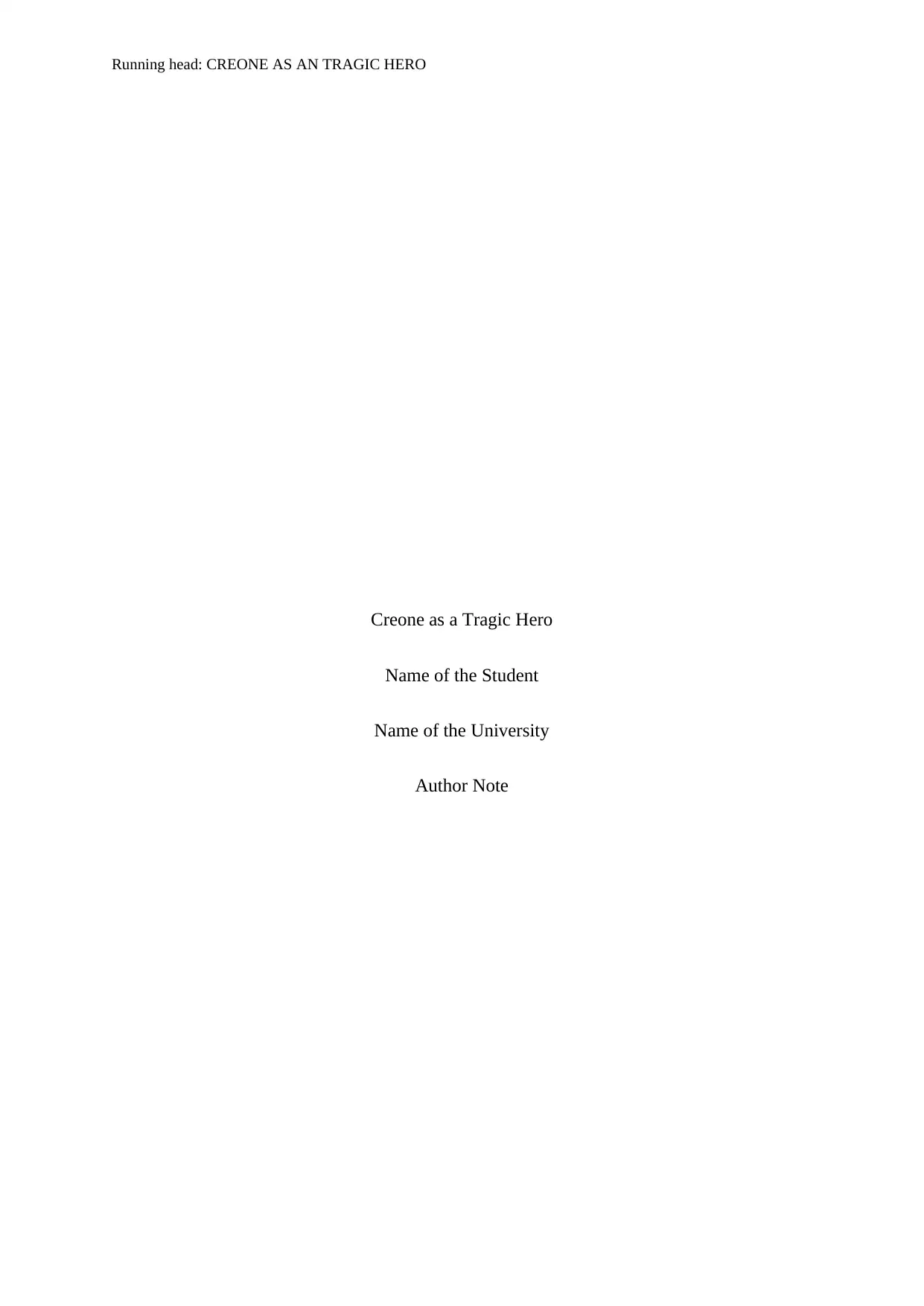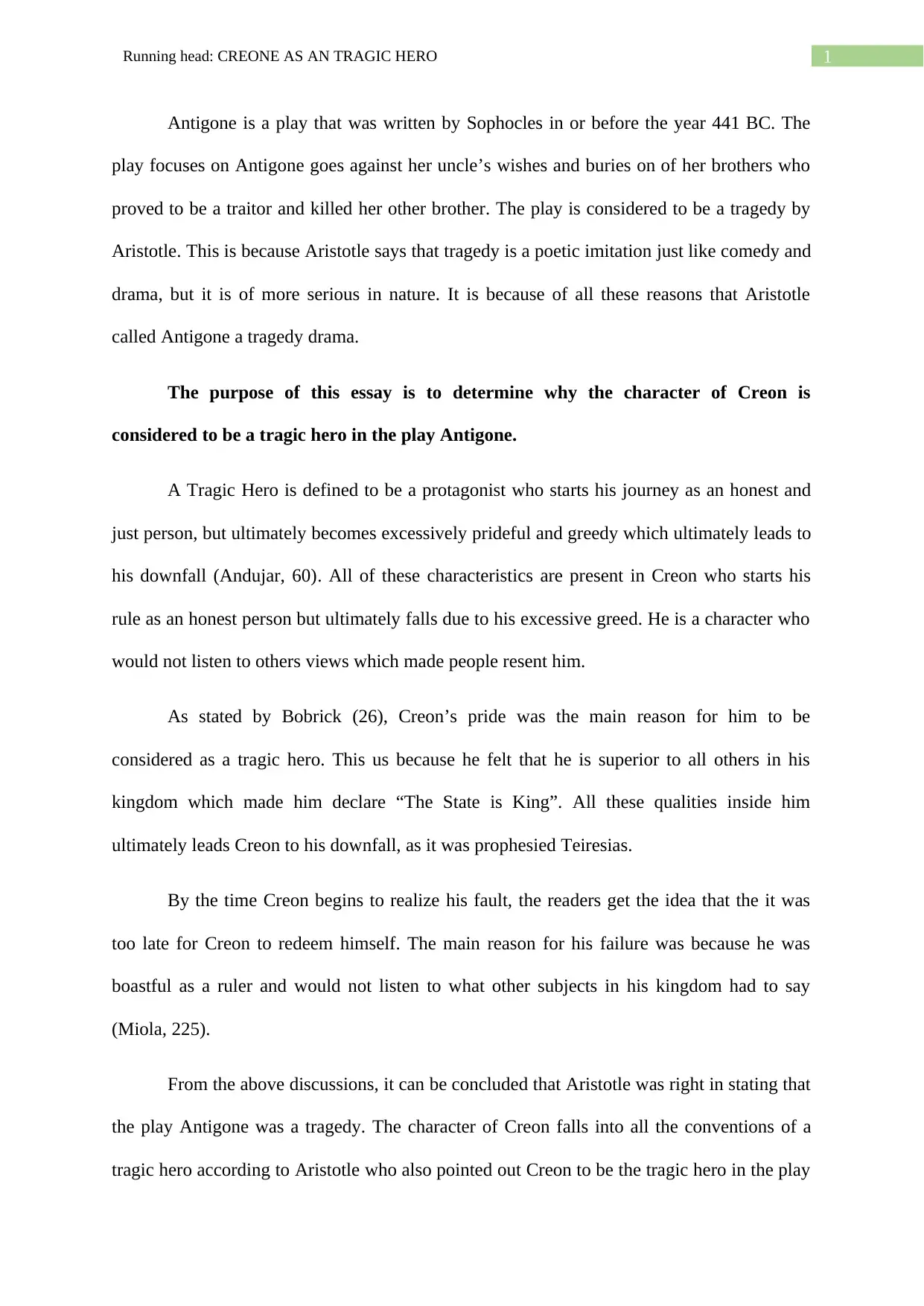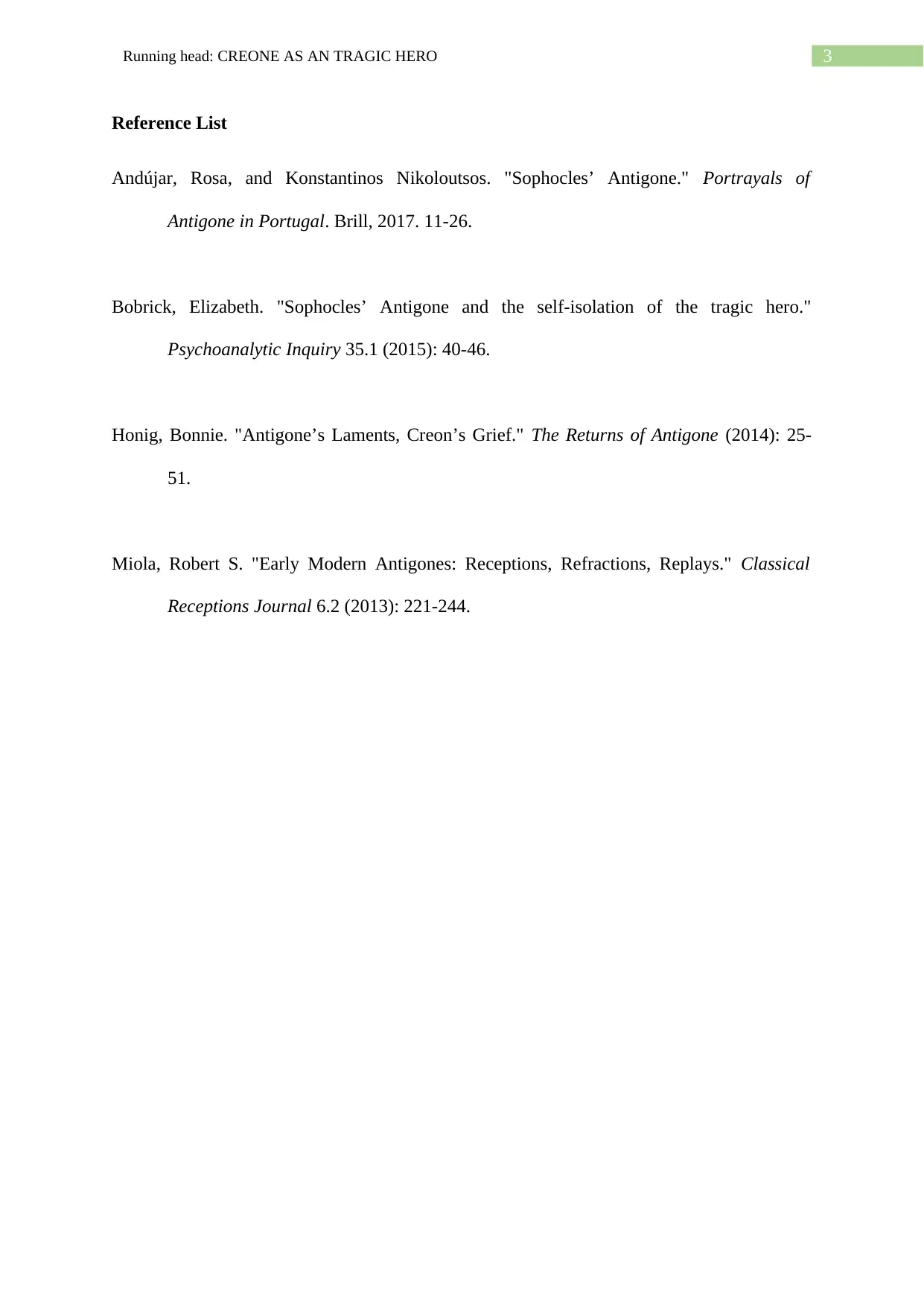An Exploration of Creon's Tragic Heroic Qualities in Antigone
VerifiedAdded on 2023/01/23
|4
|567
|56
Essay
AI Summary
This essay examines the character of Creon in Sophocles' Antigone and argues that he embodies the characteristics of a tragic hero. The essay begins by referencing Aristotle's definition of tragedy and the qualities of a tragic hero. It then analyzes Creon's actions and motivations, highlighting his pride, stubbornness, and unwillingness to listen to others, which ultimately lead to his downfall. The essay uses textual evidence from the play to support its claims, and incorporates academic sources to strengthen the argument. The conclusion reinforces the idea that Creon fits the tragic hero archetype, as he begins as a ruler but is brought down by his flaws.
1 out of 4











![[object Object]](/_next/static/media/star-bottom.7253800d.svg)